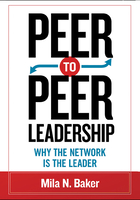
2
Node Community
Big-screen televisions lined the bar at the Lucky Strike Bowling Alley overlooking the Hudson River in New York City. Comfortable chairs, couches, and cocktail tables invited non-bowling enthusiasts to enjoy their tête-à-tête without missing anything on the big screen. My family and several friends ordered our first round of drinks in anticipation of the first 2012 presidential debate between President Barack Obama and Mitt Romney, former governor of Massachusetts. As we settled in, commentator Jim Lehrer began his introduction to the media-hyped debate.
The debate started slowly, continuing at an uneventful pace and maintaining a blasé tone until Mr. Romney repeated a comment he had previously made about wanting to cut funding to the U.S. Public Broadcasting System (PBS). But this time, he added a new twist; if elected president, he would eliminate funding to the PBS and fire Big Bird!
Fire Big Bird? The kind, likeable, compassionate, and bigger-than-life yellow bird with the orange beak? The bird that has been an iconic American symbol for at least three generations—both in the United States and throughout the world?
Almost instantly, Mr. Romney’s quote was heard around the world. “What things would I cut from spending? Well, first of all, I will eliminate all programs by this test, if they don’t pass it. Is the program so critical it’s worth borrowing money from China to pay for it? And if not, I’ll get rid of it. Obamacare’s on my list. I apologize, Mr. President. I use that term with all respect, by the way. I’m sorry, Jim, I’m going to stop the subsidy to PBS. I’m going to stop other things. I like PBS, I love Big Bird. Actually I like you, too. But I’m not going to, I’m not going to keep on spending money on things to borrow money from China to pay for. That’s number one.”
As soon as Mr. Romney uttered his threat to cut PBS spending, everyone stared at the dozen or so television screens. The apathy and disinterest that was setting in from listening to a repetition of stump speech rhetoric from both candidates suddenly ignited and became fireworks of disbelief! Stares instantly shifted and people cried out loud in unison: “Big Bird! How could anyone say they want to fire Big Bird?! Why would anyone interject Big Bird into a political conversation?” A boring and—given the extraordinary media hype—disappointing debate shifted abruptly.
Within seconds, almost everyone in the bowling alley focused their attention on their mobile devices. They logged onto Facebook and Twitter, posting their amusement with, disbelief of, or support for, the potential unemployment of a well-loved character from our collective American childhood. Within minutes, there were hundreds of likes on comments from my son’s high school friends: “Save Big Bird!” While the debate languished and the candidates lapsed into more boring, repetitive rhetoric, the social media community buzzed with energy. Thousands of Twitter and Facebook posts were simultaneously sent and received around the world. A community of Big Bird sympathizers formed—a Big Bird node community.